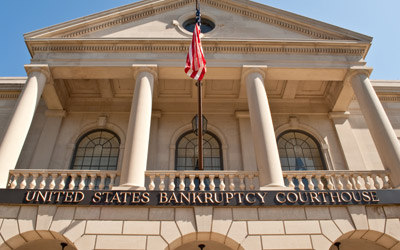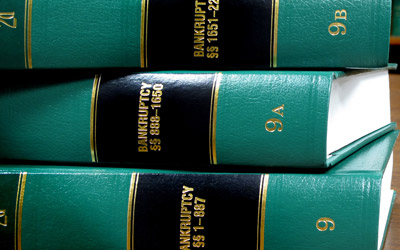Bankruptcy Articles
Utilities and Bankruptcy
The public utility companies, such as the electric company, the telephone company, gas or in some cases the cable company, can’t refuse or cut off your service simply because you have filed for bankruptcy and you still may owe them money. However, after a period of 20 days, after you file for a bankruptcy the utility company can terminate service if you (the “debtor”) does not pay a security deposit, or possibly provide other security to ensure that the utility bill(s) will continue to be paid.
A utility has the right to demand that a debtor pay a deposit within 20 days to ensure the continuation of utility services. In some situations, the utility deposit requested to insure the future payment of any utility bills can be much higher than the amount of the monthly bill. Therefore, I often advise my bankruptcy clients to simply pay their utility bills. It will create them much more aggravation in the future if these utility bills are blown off.
Federal law recognizes utilities as a public monopoly because citizens and businesses can’t easily to purchase water, electricity, natural gas, or obtain telephone service for their home or business. Therefore, a utility company can’t deny you service because a person or a business has utilized federally protected right to file for bankruptcy. This doesn’t mean that utilities will just permit an individual debtor or avoid paying their future utility bills. Most utility companies will require a debtor to post a deposit to provide “adequate assurance” that all future bills will be paid. It is very rare that a utility company will cut off a debtor’s power immediately after or during the pendency of a bankruptcy proceeding. Under the new bankruptcy code all debtors are still protected from losing their essential utility services after they file for bankruptcy.
Under the Bankruptcy Abuse Prevention and Consumer Protection Act of 2005, the basic rule essentially has remained the same. A utility service provider may not stop, refuse, alter, or discontinue any service to an existing utility customer solely because the customer (“debtor”) filed for bankruptcy protection or that customer failed to pay a pre-petition (pre-bankruptcy filing) debt owed to the utility. See, 11 U.S.C. 366(a). The new bankruptcy code does not significantly change from Section 366(b), which allows a utility (without a formal proceeding before in the Bankruptcy Court) to stop, alter, refuse, or discontinue service to an existing customer in bankruptcy if the customer, within 20 days after the date of the order for relief, fails to furnish adequate assurance of payment in the form of a deposit or other security for post-petition utility service. Just like before the new bankruptcy code if the debtor and the utility company cannot reach an agreement with respect to the type and/or amount of assurance of payment for the utility service, then both the debtor and the utility company may seek an order from the bankruptcy court.
As previously stated the utility company will probably request a deposit from you for any continued service if it was cut off prior to your bankruptcy filing. The deposit remains your money, but it is held by the utility company as security for any future service. The deposit is usually equal to approximately two or three times your average monthly utility bill. If you do not owe money to your utility companies and do not list them as a debt, then the utilities might waive the requirement for a deposit when you file. If you do owe money to the utility prior to filing for bankruptcy you may have previously posted a deposit with them when you first ordered service. Under the new bankruptcy code the utility provider can now recover pre-filing utility debt by a set off against a pre-petition deposit provided to the utility by the debtor without notice or leave of the bankruptcy court. 11 U.S.C. § 366(c)(4).
Please also keep in mind that utility services such as cable TV, internet, or cellular phone services are not considered utilities since you can usually go to another service provider. Since they are not a monopoly, they are considered non-essential utilities. At the New Jersey Bankruptcy Center we can answer your questions about filing for bankruptcy and still keeping your utility services.






